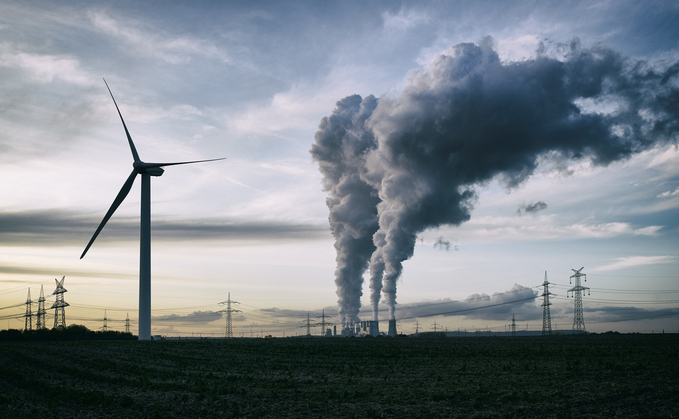
Credit: iStock
The credibility of an ambitious new climate accord could rest on one word - assuming governments can reach a workable compromise in Dubai
The crunch phase of the COP28 Climate Summit got underway today, with Ministers and diplomats seeking a form of words that can deliver either constructive ambiguity in service of an ambitious new climate deal or industrial quantities of disingenuity in service of the world's pollutocrats, depending on your point of view.
As is always the case at COP Summits multiple issues remain unresolved, but the battle between the various opposing camps looks to set to boil down to a fierce row over how, and indeed whether, the final version of the Global Stocktake should reference the future of fossil fuels. Also as is customary, the pursuit of a compromise deal has forced diplomats to stake out maximalist positions and vaguely defined demands - an approach that results in everyone talking at cross purposes while wrestling with sanity-eroding levels of sleep deprivation. This is how the future habitability of the planet is decided.
For the tens of thousands of business leaders, investors, activists watching on - over 800 of whom this morning threw their weight behind calls for a genuinely ambitious deal - it is important to try and bring some context and clarity to proceedings, so as to properly assess the credibility of the various options being discussed.
For example, it is objectively false to claim the goals of the Paris Agreement cannot be met without the full 'phase out' of fossil fuels. It may ultimately prove easier to limit to temperature increases to 1.5C if fossil fuels are eradicated altogether, but it is not essential.
The historic accord reached in Paris required governments to "achieve a balance between anthropogenic emissions by sources and removals by sinks of greenhouse gases in the second half of this century, on the basis of equity, and in the context of sustainable development and efforts to eradicate poverty" - i.e. net zero. That allows for some continued fossil fuel use, as long as the resulting emissions are fully balanced by carbon removals.
However, if a full 'phase out' of fossil fuels is not strictly essential it is also objectively true that the goals of the Paris Agreement cannot be met without a full and rapid 'phase out of unabated fossil fuels' - assuming that 'unabated' is both capaciously defined to include both carbon removal and carbon capture projects and rigorously defined to require that all fossil fuel emissions are ultimately eradicated.
The dictionary definition of 'abated' is for something unpleasant or severe to become less intense or widespread. But in this case simply making emissions from fossil fuels less intense is not sufficient. They need to be wiped off the world's carbon ledger if that balance between anthropogenic emissions and sinks is to be achieved and temperatures are to be stabilised, even if that requires a degree of carbon removal after the event. If the final text agreed in Dubai is to be genuinely ambitious and robust it needs to commit to either a phase out of fossil fuels - which many fossil fuel exporters will not accept - or a 'phase out of unabated fossil fuels', with a clear definition of 'unabated'.
All of this is demonstrably true. Those countries such as Saudi Arabi that are arguing the text should focus on emissions rather than fossil fuels are tacitly seeking to renege on commitments they have already made in signing up to the Paris Agreement. There is simply no way to achieve a "balance between anthropogenic emissions by sources and removals by sinks of greenhouse gases" without a full phase out of unabated fossil fuels. A 'phase down' won't do it; a refusal to mention fossil fuels at all amounts to an attempt to deny reality. Equally, the phase out of unabated fossil fuels has to be extremely rapid if temperature increases are to be limited to 1.5C or 'well below 2C', as required under the Paris Agreement.
Everyone knows this, even those governments that are seeking to torpedo what would be an historic deal. That is why the compromise proposals that feature in the latest draft text released this afternoon include calls for "a phase-out of unabated fossil fuels recognising the need for a peak in their consumption in this decade and underlining the importance for the energy sector to be predominantly free of fossil fuels well ahead of 2050" or a less demanding commitment to deliver a "phasing out [of] unabated fossil fuels and to rapidly reducing their use so as to achieve net-zero CO2 in energy systems by or around mid-century". Both the full phasing out of unabated fossil fuels and clear timelines for doing so are essential if there is to be any chance of meeting the temperature goals.
It is unclear how the negotiations will play out from here, but it is clear a compromise agreement is available that would send the most explicit signal yet that the fossil fuel industry is either about to move into structural decline or face gargantuan additional costs as it seeks to abate its emissions - or most likely a mix of both. Equally, if the talks fail to deliver such a commitment it will be because a handful of countries will have outed themselves as the reckless opponents of the Paris Agreement and humanity's last ditch effort to avert global catastrophe.
Previous attempts to block ambitious climate treaties could rely on the cover provided by not unreasonable concerns that decarbonisation pledges could hamper development. But that is no longer the case. The poorest and most climate vulnerable nations are desperate for an ambitious commitment to phase out unabated fossil fuels. The rest of the draft text and its focus on climate finance and rapid clean tech deployment point to how development can be maintained. The reference to "unabated fossil fuels" allows for some continued fossil fuel production as long as it is genuinely compatible with climate goals. To oppose any of this is to lobby for well over 2C of warming and everything that goes with it.
For businesses, two lessons from Dubai are already obvious. The first is that if there is a commitment to "phase out unabated fossil fuels" it will provide yet more evidence the wind down of fossil fuels is imminent. Global emissions are already expected to peak this year or next, as every renewables and electric vehicle project serves to destroy fossil fuel demand. The reference to "unabated fossil fuels" would point to the emergence of a multi billion dollar carbon capture and removals industry, but the costs of such projects are simply too high and the alternative clean technologies too competitive for it to be anything other than a marginal component of the net zero transition. Fossil fuel demand will fall and stranded assets will result. Everyone will have been warned. The only question is whether it can happen fast enough to avoid over 1.5C or 2C of warming.
The second lesson is that while an ambitious agreement in Dubai would help accelerate this process, it will continue regardless. Clean tech cost curves will continue to outcompete extractive, externality-laden industries. If Saudi Arabia and its allies block a deal to tackle unabated fossil fuels, unabated fossil fuels will still have to be tackled. Governments and businesses will still have to reach net zero emissions as quickly as possible. Fail to get there and global temperatures will simply continue to spiral upwards, and the international order will collapse under the resulting pressures. Businesses should be preparing for both the rapid transformation of the global economy and intensifying climate impacts on everything everywhere all at once. Atmospheric physics ultimately cares nothing for wrangling over the precise wording of bullet points in an international accord. Only net zero emissions will end this rolling crisis. Shame on those who claim otherwise.
Those are the stakes. A dramatic few days in the Dubai desert await.









